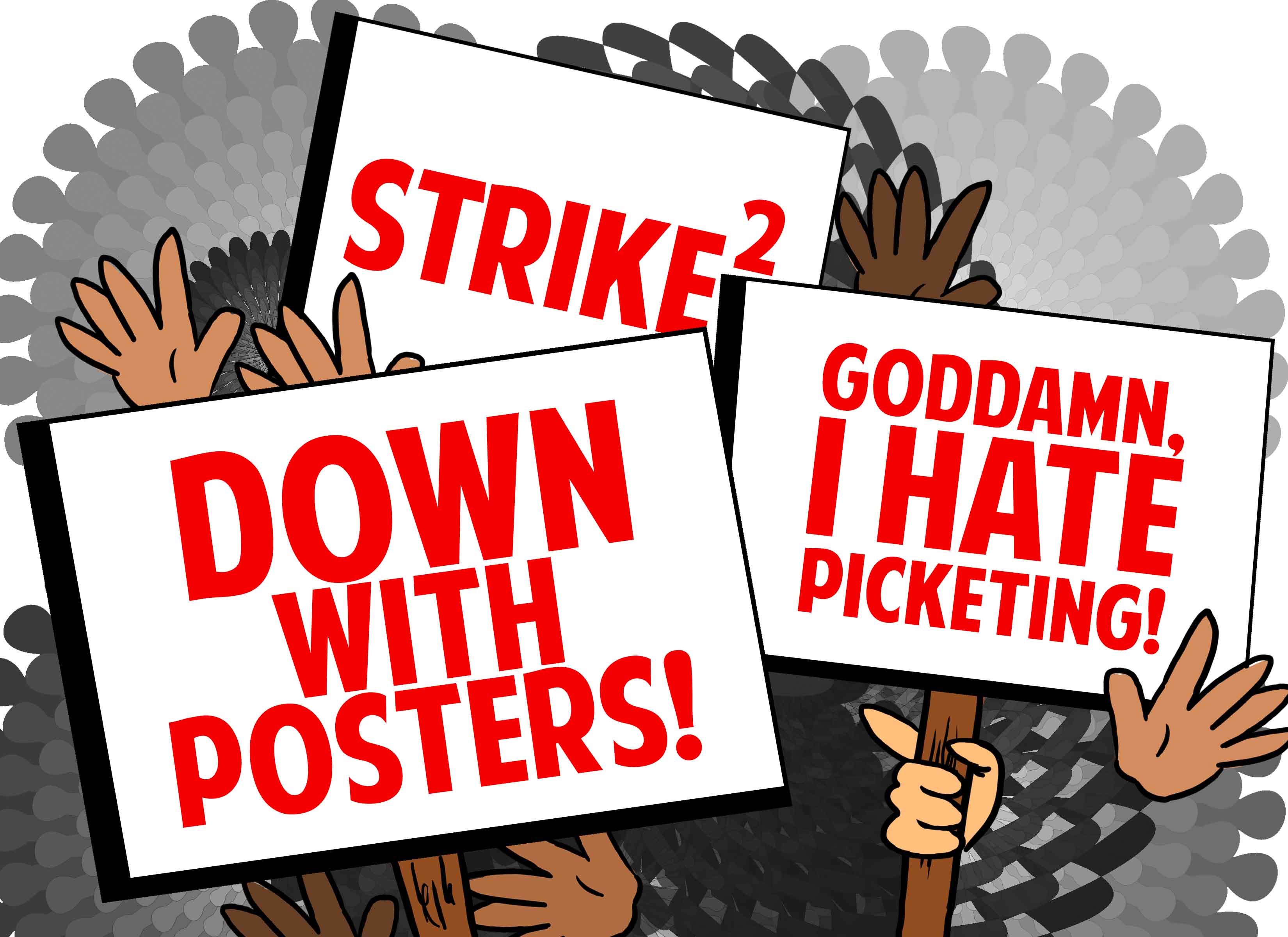Students who feel they haven’t been adequately represented by their student associations and the CSU, and who disapprove of the strike itself, created the “Concordia students against a strike” Facebook page.
CSU President Lex Gill met with representatives of the group to discuss the issue on Monday. They have been looking into renaming their Facebook group because it has proved to be misleading to some. The students involved are not all against the strike itself, but are dissatisfied with the manner in which the strikers are protesting and the way the strike vote was conducted, explained CSAS spokesperson Taylor Green.
“We are against this process, the way it’s being done,” said the second-year urban studies student.
The group is also behind a petition that has been circulating online aiming to put a stop to the strike.
Roman Zmeev, a commerce and international business student, signed the petition because he’s graduating and is concerned about the semester being extended.
“I understand that no one wants to pay more for their semester, but having to deal with balancing your finances is part of being a student,” he said.
CSAS members have argued that the voting process for the strike was biased and non-representative. According to Green, his umbrella group unifies people on both sides of the tuition debate in a joint effort to keep the student government accountable.
“I say we are against a strike, because the way the strike has been presented to us, this particular method, the tactics that are being employed, are unacceptable,” said Green.
During his meeting with Gill, Green presented alternatives and more creative ways to protest.
Anti-strike groups have also appeared on Twitter, notably one called “StriketheStrike,” which also aims to inform fellow students why it is important to fight the strike against tuition hikes.
“We represent not only Concordia’s student body who is opposed to the strike, but society in general that will have to pick up the bill for us,” said a student identifying himself as Tim, a spokesperson for StriketheStrike.
During an interview with The Concordian, Tim went on to say that the movement is “fighting to make the rest of the student body understand how their demands are not economically responsible, and the greater injustices it would lead towards.”
StriketheStrike has openly challenged CSU President Lex Gill via Twitter to a public debate on the issue, which she has tentatively accepted.
“I’m really hoping that there is some healthy, positive dialogue around this issue, but at this point, I haven’t heard back from this person,” said Gill. “As far as the CSU is concerned, this is completely welcome.”
Also involved in the anti-strike movement is a newly-formed coalition called the Coalition étudiante pour l’association libre, who say they are concerned with the divisions that have been emerging across Quebec campuses in the fight against tuition hikes. CÉPAL is offering students who don’t support the strike a way to opt out of their student unions.
“We oppose that general student associations, that represent all students, take political positions,” said Philippe-Olivier Daniel, a law student at Université de Sherbrooke and spokesperson for the CÉPAL. “This will also promote a diversification of political opinions within the student body,”
The proposed CÉPAL reform aims to separate political activities and student representation into two different sectors.
Anti-strike students raise awareness
